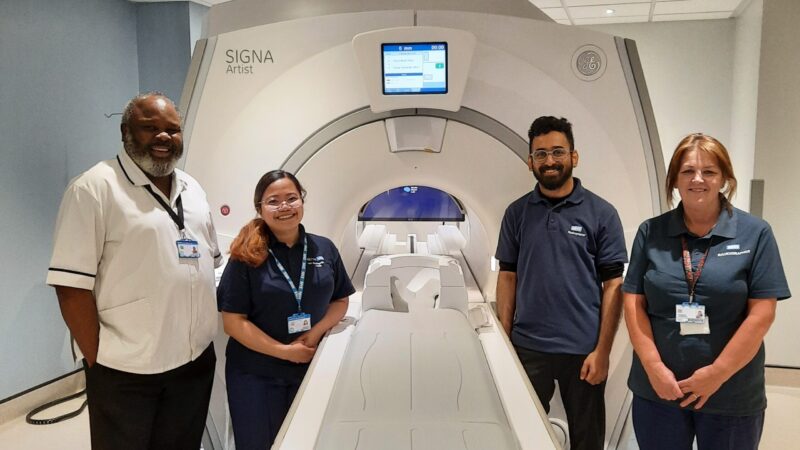
Staff at NHS Humber Health Partnership have embraced AI technology to improve patient experience.
By installing, and subsequently upgrading, the Air Recon Deep Learning (ARDL) software on their existing machines, they’ve seen the image quality of scans improve whilst reducing the time taken for each scan by a third in some cases.
The ARDL software uses algorithms to help reduce background noise, helping to achieve sharper images in a shorter time.
Karen Bunker, Head of Imaging, said: “This means we can reduce the scanning time on certain sequences, but still get the same imaging quality, and in some instances even improve our image quality to aide in better diagnosis.”
The software has already been installed at Hull Royal and Castle Hill hospitals already, is partially implemented at Scunthorpe General Hospital and Grimsby’s Diana, Princess of Wales Hospital will be getting the technology over the coming months.
The implementation of AI means staff are able to scan more patients each day, with them shaving off between 10 to 15 minutes from average scan times. For instance, a routine head MRI now takes 20 minutes instead of 30, and a prostate scan takes 30 minutes as opposed to 45 minutes. In a full day of scanning routine lumbar spine patients, staff would previously see 21 over the course of 12 hours, they can now get through 31.
Embracing AI has not only helped to free up more appointments and increase capacity in the department, but it’s also having a positive impact on patients who have previously needed extra support to get through the scan.
Karen explains: “People who struggle with claustrophobia, or those with Learning Disabilities, who previously couldn’t tolerate a scan, are finding they are able to endure the shorter scan times. For some patients they’ve been able to have a scan without a general anaesthetic, which is a better experience for them, means less chance of complications and in turn uses less resources saving the department money.”
Some paediatric patients struggle to keep still in the scanner, meaning they’re either in there for a long time, staff are unable to get a clear picture, or they have to have a general anaesthetic for staff to get a decent image quality. Since the software installation staff have noticed fewer children need to undergo a general anaesthetic to get through the scan.
The software was funded through a combination of NHS England and Integrated Care Board funding.